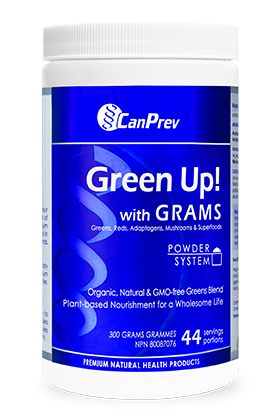Vegan diets have seen a rapid surge in popularity, due to the purported health benefits, environmental implications, and a wave of documentaries encouraging an animal-free approach to food. While vegetarian diets eschew meat products, veganism removes all animal by-products from the equation, including milk, eggs, and honey. With the elimination of so many food options, how can you determine if a plant-based diet is right for you?
Health benefits of a plant-based diet
There are a variety of reasons one may opt to try a plant-based diet, and health is an important factor commonly attributed to veganism. Let’s look at some of the major health benefits of eating plant-based.
Chronic diseases
When compared to an omnivorous diet, plant-based eating can significantly improve cardiovascular health and reduce the risk of heart disease by lowering cholesterol and glucose levels, inflammation, and blood pressure. This is not only due to the lack of dietary cholesterol and saturated fat found in the diet, but also because of the abundance of fibre and phytonutrients. There has also been research suggesting a possible link between plant-based diets and lower incidences of cancer, even when compared to vegetarian diets.
Cognitive health
Healthy dietary patterns have been connected to a lower risk of cognitive impairment, in terms of prevention and delay. With Alzheimer’s disease and other forms of dementia on the rise, new research suggests that nutrition plays a role in preventing these conditions from developing. Diets low in animal products, and high in antioxidant-rich plant-based foods such as fruits, vegetables and whole grains, can lessen the prevalence of cognitive impairment later on in life.
Weight management
Plant-based diets are an effective tool for weight management, due to the abundance of dietary fibre that prolongs satiation, resulting in fewer calories consumed. Studies have also shown more pronounced weight loss in those eating plant-based (including the loss of stubborn visceral fat), metabolic improvements, and a decrease in insulin resistance (beneficial for those with type 2 diabetes) when compared to an omnivore diet.
Common deficiencies on a vegan diet: What are they and how can they be avoided?
While the health benefits are certainly promising, there are also many nutrients to be mindful of when eating plant-based to avoid any potential deficiencies.
Vitamins B12 and D
It is generally recommended to supplement with vitamin B12 and vitamin D when eating plant-based. Vitamin B12 is only found naturally in animal foods, and vitamin D is available predominately in animal proteins. This can cause a potential deficiency risk in vegans, and even vegetarians. With so many important functions, including the development of the central nervous system (B12), and aiding in calcium absorption (D), it is recommended that vegans supplement with B12 as well as vitamin D, or regularly consume foods fortified with them.
Amino acids
Amino acids are the building blocks of protein. There are nine essential amino acids that need to be consumed through food, as our body cannot produce them. While animal-based sources of protein are complete in terms of including all essential amino acids, plant-based sources of protein are mostly incomplete. Vegans should pay extra attention to their protein intake, consuming a variety of amino acids throughout the day, or by supplementing amino acids to ensure adequate intake.
Plant-based sources of iron
Considered the life source of every cell, iron can be found in many plant-based foods. Plant-based iron is referred to as non-heme iron, as opposed to the heme iron found in animal foods. The former is prevalent in leafy greens, whole grains, and legumes, but is not as effectively absorbed as its counterpart. However, by consuming non-heme iron with vitamin c, vegans and vegetarians can significantly improve their body’s ability to absorb iron.
Zinc
Although it’s a trace mineral, zinc is required for the activity of over 300 enzymes running the body’s essential processes, including immune, fertility and mood support. While it is most bioavailable in animal foods, you can still obtain zinc from plant-based foods, including legumes, nuts, seeds, and mushrooms.
Omega-3 sources
Omega-3 fatty acids cannot be produced in the body, making them essential. With important roles such as neurological development, vegans must ensure adequate intake of this important dietary fat. Although fatty fish is most commonly associated with omega-3, plant-based sources include seaweed, algae, walnuts, as well as many types of seeds.
Filling in the gaps with nutritional supplements
There are pros and cons when it comes to adopting a vegan diet, and being mindful of essential nutrients can certainly simplify the experience! The good news is that in addition to healthy eating, you can easily cover all of your nutrient bases with supplementation.
CanPrev’s Active Multi contains 25 essential vitamins and minerals – all in a convenient powder form! It’s great for filling in any potential nutrient gaps and preventing common deficiencies while eating plant-based.
For boosting your daily nutritional intake, try CanPrev’s Green Up! Complete with the raw power of greens, red fruits, adaptogens, immune-boosting mushrooms and fatigue-fighting adaptogenic herbs, it’s the simple way to diversify your diet.
A vegan diet for beginners
If you are planning to adopt a plant-based diet, you can ease into it gradually with campaigns such as Veganuary or Meatless Mondays, giving yourself time to become familiar with delicious and healthy vegan recipes. You can also transition by first following the Mediterranean Diet, slowly eliminating all animal products from there. Remember: slow and steady always wins the race!

Beyond The Hype: Is a Plant Based Diet Right for You?

Leave a Reply
You must be logged in to post a comment.